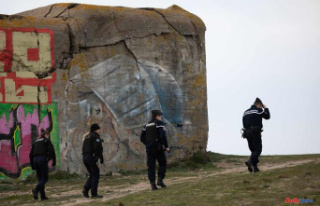Three years after its debut, the origins of the Covid-19 pandemic are attracting renewed attention. Federal Bureau of Investigation (FBI) Director Christopher Wray said on Tuesday that a lab accident in Wuhan, China, was "highly likely" the cause of the Covid-19 pandemic, two days after a similar hypothesis put forward by the US Department of Energy.
The WHO on Friday March 3 urged all countries, including the United States, to share their information on the issue. "If a country has information about the origins of the pandemic, it is essential that this information is shared with the WHO and the international scientific community," said World Health Organization Director-General Tedros Adhanom. Ghebreyesus, during his regular press conference. This is not about “blaming the blame,” he said, but about “advancing our understanding of how this pandemic began.”
Maria Van Kerkhove, head of the Covid-19 response at the WHO, told reporters that the agency had asked Americans to share information from the Department of Energy, but also from other agencies. “At this time, we do not have access to these reports or the data that led to these reports,” she acknowledged.
The scientific community believes that it is crucial to know the origins of this scourge in order to better combat it or even avoid a future pandemic. But it is also divided between the proponents of the hypothesis of transmission by intermediate animal and those who defend the thesis of the escape from a laboratory in Wuhan.
Dr. Tedros sees this as a "scientific imperative" but also a "moral" one vis-à-vis the millions of victims and their families. He lamented "the continued politicization" of this quest for the origins of the worst pandemic in a century, which has turned "what should be a purely scientific process into a geopolitical game".
Divided U.S. Services
New intelligence would have tilted the US Department of Energy's analysis on the side of the leak hypothesis, according to unnamed sources cited by the Wall Street Journal, the New York Times and CNN.
The US intelligence world is now even more divided, with some agencies believing that Covid-19 arose through natural transmission. The FBI director also accused China of trying to block the US-led investigation into the causes of the Covid-19 pandemic. Beijing vigorously disputes these claims.
The pandemic has killed more than 7 million people since the end of 2019, a figure that is undoubtedly far below reality.
A team of specialists under the leadership of the WHO and accompanied by Chinese colleagues had investigated in China at the beginning of 2021 to try to unravel the mystery of the origins in Wuhan, on the places where the pandemic seems to have started.
In a joint report, they had favored the hypothesis of the transmission to humans of the highly contagious virus by an animal which played the intermediary between the bat and the man, perhaps in a market in the city. Chinese. No team was able to return to China, and WHO officials repeatedly requested additional data, which had so far always been denied.
Beijing called for transparency
Dr Tedros reiterated Friday that the WHO has no intention of abandoning the research and again called on Beijing "to be transparent in sharing the data, to carry out the necessary investigations and to share the results". He reaffirmed that he had written to many senior Chinese leaders, and spoken with them on multiple occasions, "as recently as a few weeks ago." For now, he concluded, "all hypotheses...remain on the table."
He also stressed that States should soon begin negotiations at the WHO on a draft global agreement on pandemics, aimed at settling the issue of information sharing and inequalities in access to vaccines observed between countries. rich and developing countries in the face of Covid-19. Dr Tedros said he hoped the negotiations could be concluded by May 2024 and called on countries to "learn the lessons of this pandemic" so as not to repeat its mistakes.












